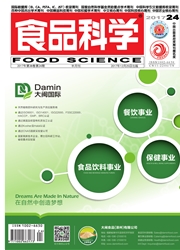

 中文摘要:
中文摘要:
鱿鱼是我国重要的远洋渔业捕捞对象,捕捞后需要及时进行船上冻结,因此,冷冻鱿鱼是各类鱿鱼制品生产的主要原料。低温贮藏尤其是冻藏是目前广泛应用的一种保鲜方法,冷冻水产品在加工前必须进行解冻,鱿鱼在低温贮藏和解冻过程中会发生汁液流失,影响其营养价值,导致品质劣变。冷冻水产品最终品质的好坏不仅取决于冷冻方法、冻藏温度、温度波动,还和后续的解冻方式有关。本文综述了鱿鱼在低温贮藏和解冻过程中发生的物理化学变化,主要从水分含量、蛋白质变性及氧化、脂质氧化、色泽、pH值和微生物组成及特定腐败菌等几个方面进行了阐述,旨在为水产加工企业在鱿鱼保鲜加工方面提供理论参考。
 英文摘要:
英文摘要:
Squids are an important resource for oversea fisheries in China.Immediate freezing of squids after harvest is required.Therefore,frozen squids are the major raw material for all squid products.Low-temperature storage especially frozen storage has been widely used in food preservation.Frozen aquatic products must be thawed before they are processed.However,the process may also cause drip loss and reduced quality.The quality of frozen aquatic products depends not only on freezing methods and temperature and temperature fluctuations,but also on subsequent thawing methods.This review article discusses many physical and chemical changes including moisture content,protein denaturation and oxidation,lipid oxidation,color and pH and microbial changes including specific spoilage organisms during low-temperature storage and thawing of squids,in order to provide valuable information on improving squid storage process.
 同期刊论文项目
同期刊论文项目
 同项目期刊论文
同项目期刊论文
 期刊信息
期刊信息
